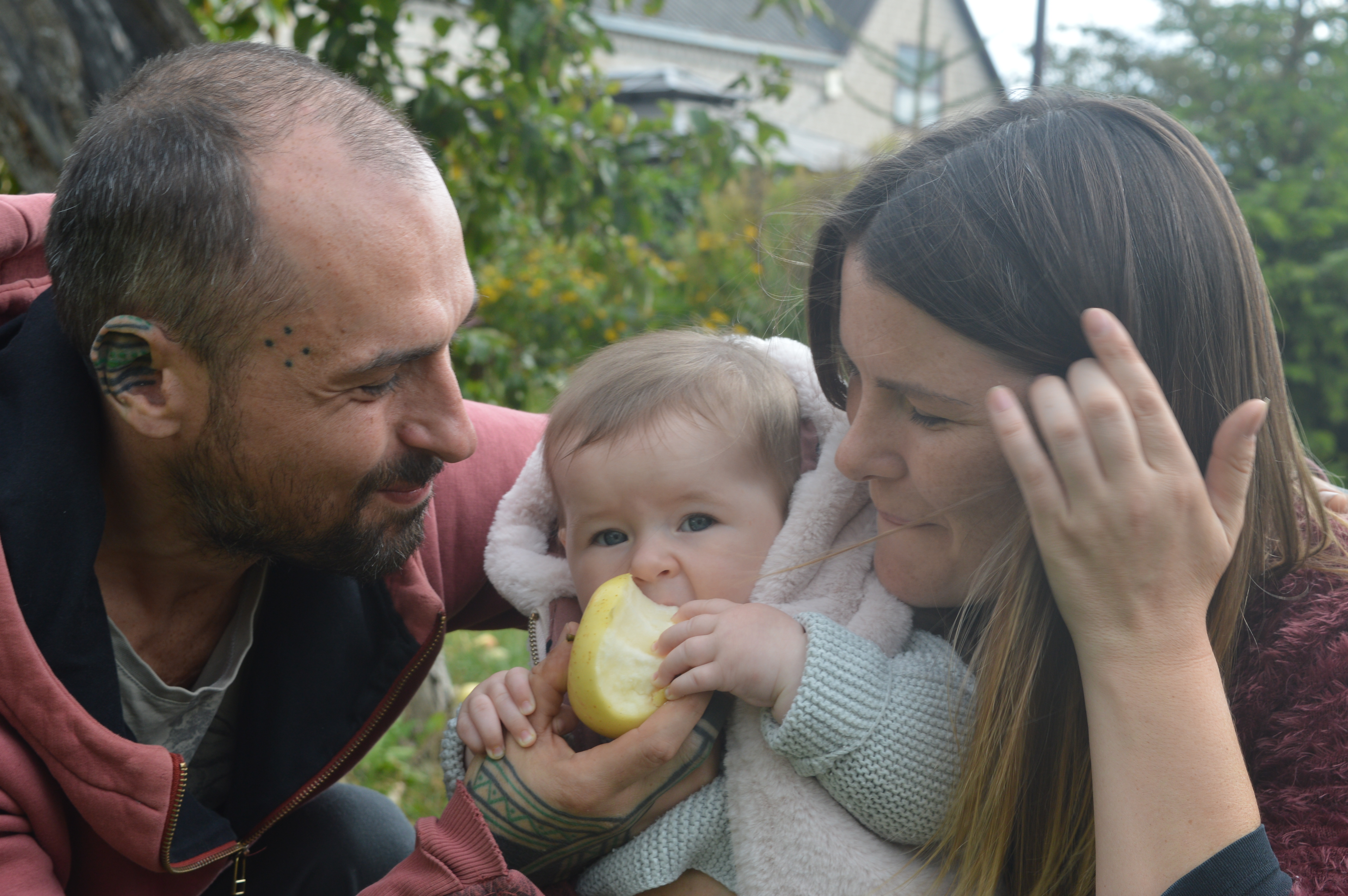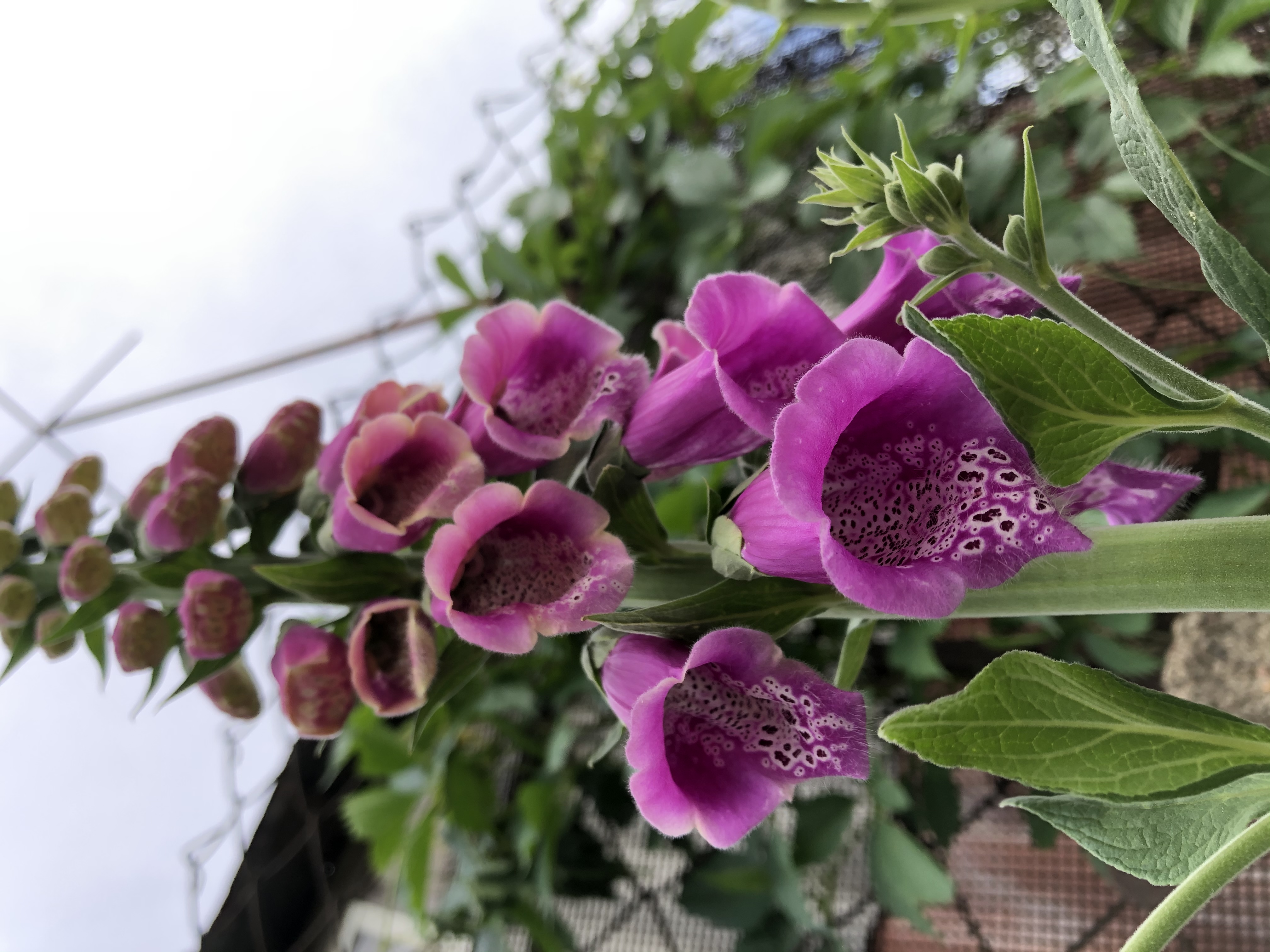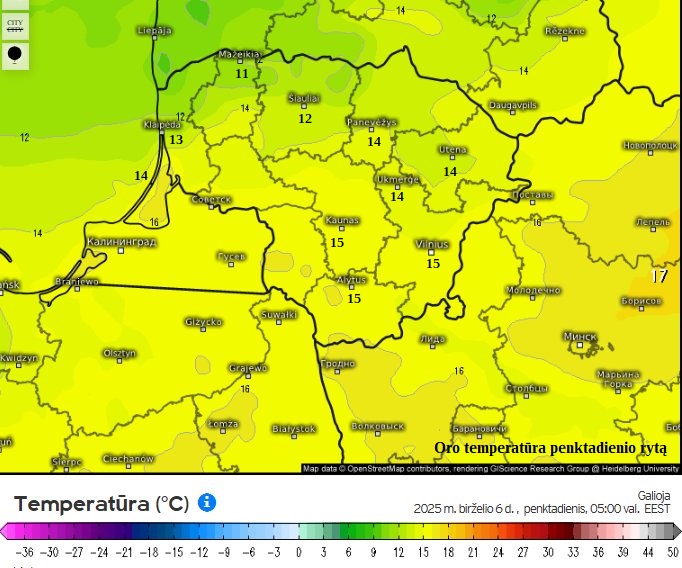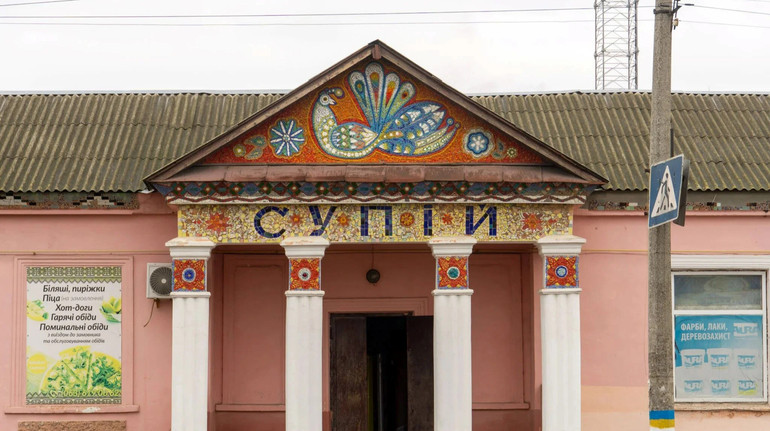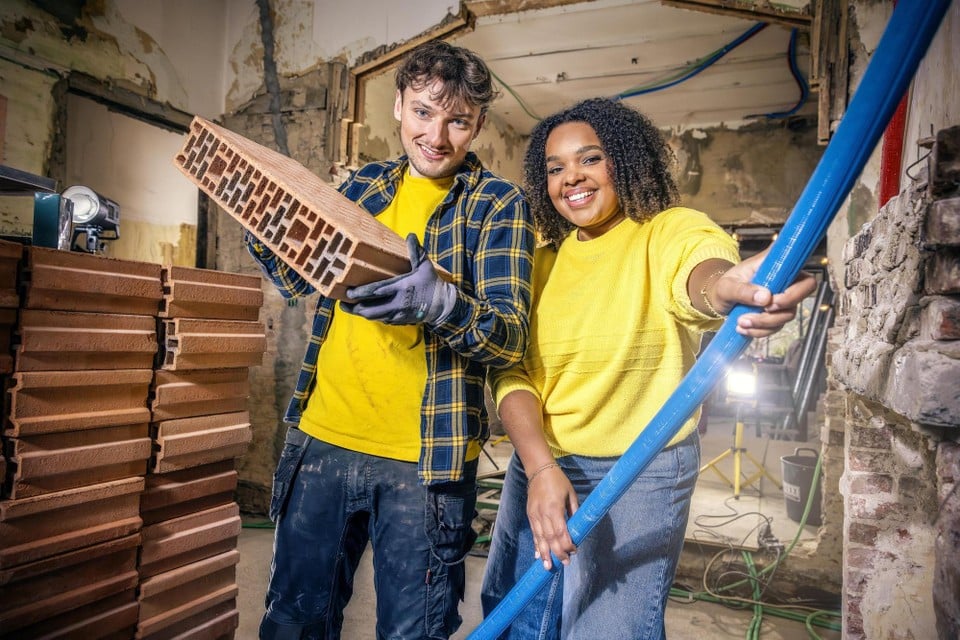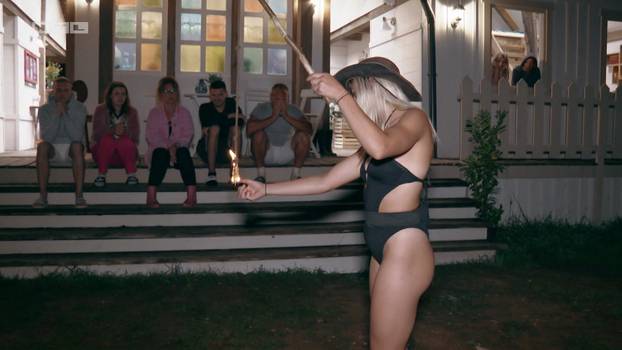If you give to nature, she will thank and reward
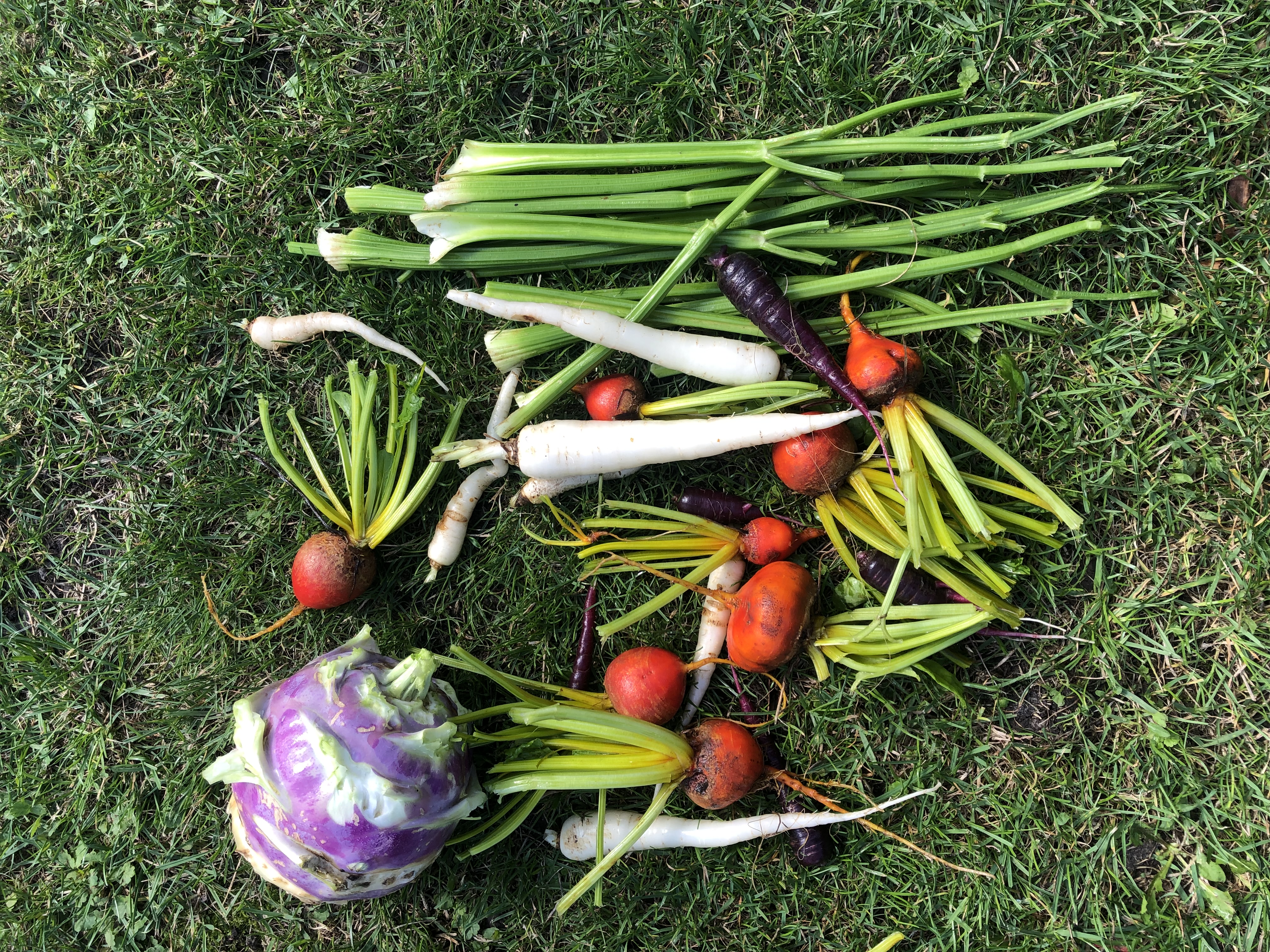
From nature – on asphalt
Today, the general audience Egle is probably the most familiar role of Kamil in the television series « Cursed ». And in her life, she is a two -year -old daughter's mother and just a happy man who is happy with his environment and nature every day.
The interlocutor is considering that the seed of that love for the nature, the seed of the earth, was sown in it in childhood, drowned on slopes and screaming trees. The future actress grew up on the outskirts of Kaunas, near the Landscape Reserve. As Egle herself says, almost the entire Red Book was carried here, and learning to read it was also encouraged by a class teacher, a biology teacher.
“My childhood, the beginning of the school was very bound to nature, but in my teenage years I decided I wanted to get out of here. Life changed contrasting – adolescence in Kaunas was completely urban, urbanist, a punk rock started, parties, and then I wanted to go to an even bigger city as soon as possible, to Vilnius, ”recalls the interviewer.
In the long run, however, the daily routine of the city was no longer happy, and after 10 years I had to admit to myself in the center of the capital: “I started to see no point, everything was tired, I no longer lived a citizen life, I did not visit cafes or parties. The city was associated with work, events, but not leisure. ”
The boundaries of being expanded
According to Egle, new -skate, and eventually the start of the horticulture and gardening coincided with the strictest restrictions.
“As if feeling, a couple of months before quarantine with the current man in a small apartment in Užupis, we suddenly moved to Kaunas – we brought our cat and took our first dog out of the shelter. We were so happy. When it was not even possible to walk in the open spaces, we had our own yard, where we could go out every day, ”the interviewer smiles.
Thus, the possibility of injecting hands to the ground at that time also first gained emotional meaning – slightly humiliated, forgetting the anxiety and uncertainty at the time.
It was just before the pandemic decision that the interviewer calls one of the best steps in his life. Today, in their home, the family does not create a cozy oasis of peace – two greenhouses, a variety of vegetables, fruits and hundreds of ornamental plants, are ripened with just 12 ares.
As Egle says, plants cherished by love and wisdom bring both micro- and macro-legged benefits.
“First of all, it is your own health, because you are moving, exercising, getting healthy, diverse food, and at the same time psychological health, instead of sitting in social media, touching real life, real land. Again, we can talk about the sense of meaning that each of us, who grows something consciously and without any synthetic fertilizer, contributes to nature's biodiversity. Each plant attracts polyntors, which are now a bit of a risk zone. By growing the population of such insects, we also improve our entire environmental health, ”explains the interviewer.
Harvest: The artist is interested in non -standard horticulture. / Photo by E. Valadkevičiūtė-Marcinkevičienė Personal Archive
Purple pea fake
As Egle jokes, he was pressing the « Gaza bottom » from the heart as soon as he started to harvest.
“By pregnancy, my farm was impressive. The record is 20 different varieties of tomatoes, from green to striped, black or purple. Both mom and grandmother raised a garden. For me, that knowledge was a completely natural thing, but I still wanted to somehow differently. I also tried to grow purple carrots, peas. Of course, not everything has worked. I realized that the same purple peas look beautiful, but their taste as fodder. So sometimes it is worth remembering what breeds your grandmother was growing, ”the interviewer smiles.
Among other rarer vegetables grown in the actress are also popular in Greece, Italy, which not only are very nutritious, bring a lot of benefits to the intestine, but are also extremely decorative. Still, perhaps the biggest pride of the gardener is watermelons, and one of them weighed as much as 9 kg.
“There were both yellow, yellow flesh, round, and oblong, of course, with all of them. They need more space and preparation before planting in the ground. Of course, knowledge. There are very good information in groups of growers, as well as people share seeds of various rare varieties. It was surprising that there are also Lithuanian breeders' watermelon varieties, which are very suitable for our climate, ”the interviewer shares her experience.
When you are closer to the Earth, you feel the waking of nature more strongly, you see the smallest nuances, and you are watching all the processes.
Corn – into a flowerbed
Spruce agrees – today, everyday life is becoming more and more exotic things.
“I have seen people in greenhouses drive heating systems and even grow fig trees. Only such activities already require very large resources and greenhouses themselves. Although it would be a bit unfortunate to sacrifice the space for me to fit 10 tomatoes for one such tree, explains the interviewer. – Of course, the climate is changing. And very drastically. And with that change, it is not just the pluses come. Yes, we will be able to grow more pampering plants, but there is a growing number of pests that our nature is not yet ready to fight. ”
In the eyes of the actress, the peculiarity of her own farming is more manifested in various experiments.
“For example, in the flowerbed, I started growing corn because they are plants of wonderful beauty. When they grow up, they become a bit like banana trees. And at the same time you yield. Papers can also be perfectly grown in a flower garden, as they stack wonderfully beautiful – white, fluffy rings at the end of summer. For such experimentation, I am inspired by a childhood friend, who is one of the best Lithuanian landscapers, is interested in this form of naturalistic landscaping, ”says the creator.
Priority: The first -born couple is trying to get their table as clean, the most useful food as possible. / Photo by E. Valadkevičiūtė-Marcinkevičienė Personal Archive
The privilege of healthy food
Experimental horticulture is often delighted with fun surprises.
“The same couples have become perennial plants with me. Because I allow them to bloom because it is beautiful to me, they sow themselves and grow again. Even now, if I want some kind of greens, I can go to the garden and hang those small paneries, ”says the gardener.
In addition, all kinds of attempts, searches, especially when it comes to plants, also admits the artist.
“But the rules can be broken when you know them. It is necessary to know the laws of the composition, as well as the principles of plant compatibility, and so on that you would not experience a complete fiasco when you experiment experiment, ”she says.
In the words of Spruce, the intense horticulture, after a bit of motherhood, had to push all extravagant ideas to the side.
« I just want to see what is easiest to grow and maybe to do it somehow even more ingenious, more useful, to make the most of it as possible, » says the actress. – With a child, you want the food to be as clean and useful as possible. Therefore, my husband and I do not use any synthetic fertilizers and try to make our land and farm completely friendly to both biodiversity and our bodies. ”
There is no need for huge robbers
The interlocutor is probably in solidarity with many gardeners, stating that no store shelves or fruits will be comparable to the taste of the harvest on his own farm. The actress still remembers the eloquent expression of a colleague when she was treated with her tomatoes she raised.
“The taste of the same watermelons is no longer wanting them from the supermarket. And when it comes to tomatoes, a separate story at all – only different varieties can create multicolored and different flavors, ”says Egle.
Because the couple looks at the horticulture not only responsibly but also rationally, and so the harvest grown on a relatively small farm satisfies the family needs for a long time.
“It just proves once again that it doesn't take much space if you wisely lay it out. We ate our tomatoes this year until November. Not to mention zucchini, pumpkins, which can also stand for a very long time. Of course, I have been freezing a lot of things, so maybe you should try to make all the canning and tanning things a little more, ”says the interviewer.
When asked what kind of gardening and gardening phase is the cutest to her, the actress smiles: everyone, but of course, tastes the most fun. Therefore, as every year, the spring, which is gradually retained, is increasingly heating the excitement.
“When you are closer to the Earth, you feel the waking of nature more strongly, you see the smallest nuances, and you are watching all the processes. Whoever stacks a bud, when it explodes, when some birds fly, bumps awaken, butterflies fly. You are just poinchronized with nature. When spring comes, all of us gardeners and gardeners, like those buds, will explode from within, ”the artist smiles.
Forms: Various decorative accents are also delighted in family holdings. / Photo by E. Valadkevičiūtė-Marcinkevičienė Personal Archive
Natural fertilizers – IT gold
As Egle confesses, she often draws information or experience in social space – in various forums of like -minded growers.
“I am not really an active participant, but if there is some question or I see the question I know the answer I write. It is fun that horticulture is so unifying. The mere fact that you and your neighbors are already creating a kind of fellowship – people consult with each other and share seedlings. It's like a separate subculture, all who are gardeners, gardeners know something they don't know, ”the interviewer smiles.
Each of us, who grows something consciously and without any synthetic fertilizer, contributes to the biodiversity of nature.
And what tips would she want to share with others?
« There is a very good phrase that my stage language lecturer said: 'Every vegetable is your own time.' It is perfectly adapted to both the artist's inner revelation and the gardener. Because you really need that patience not to rush, to observe the cycles of nature. Probably my biggest mistakes are related. And the main tip would be to take care of your land to make it healthy, composting and nutritious for plants, then they will get a good start. Therefore, another advice as a wish is to compost because the composting is just gold, we do not need any additional fertilizer and it solves a lot of ecological problems, ”the interviewer recalls.
Spruce also recommends another favorite way of natural fertilization: “If I see nettle grow, I really don't worry, though many fear weeds. In fact, it is a wonderful plant. We make them, we support them a little, and we watered with that frenzy – there is nothing more nutritious for plants! ”
She also advises you from time to time not to be afraid to just run the reins, and some things begin to form on their own: “For example, do not wash, do not put all the salad, let them bloom, then they will scatter the seeds before spring, and in your greenhouse you will find a salad. Same with couples. In nature, life always finds the way, just sometimes it only needs to be disturbing, not to be everywhere for such sterile. ”
According to Egle, sometimes we do not appreciate how we can help to create the whole ecosystem with our little touch alone.
“Many people move out of cities to the countryside, but the lawn is alone. Realistically, the same benefits of biodiversity as that person would have stayed in the apartment. And when you start growing various plants, you will see how much value you will create for all kinds of beetles, birds. If you give nature, she will surely thank and reward it for it, ”says the creator.

